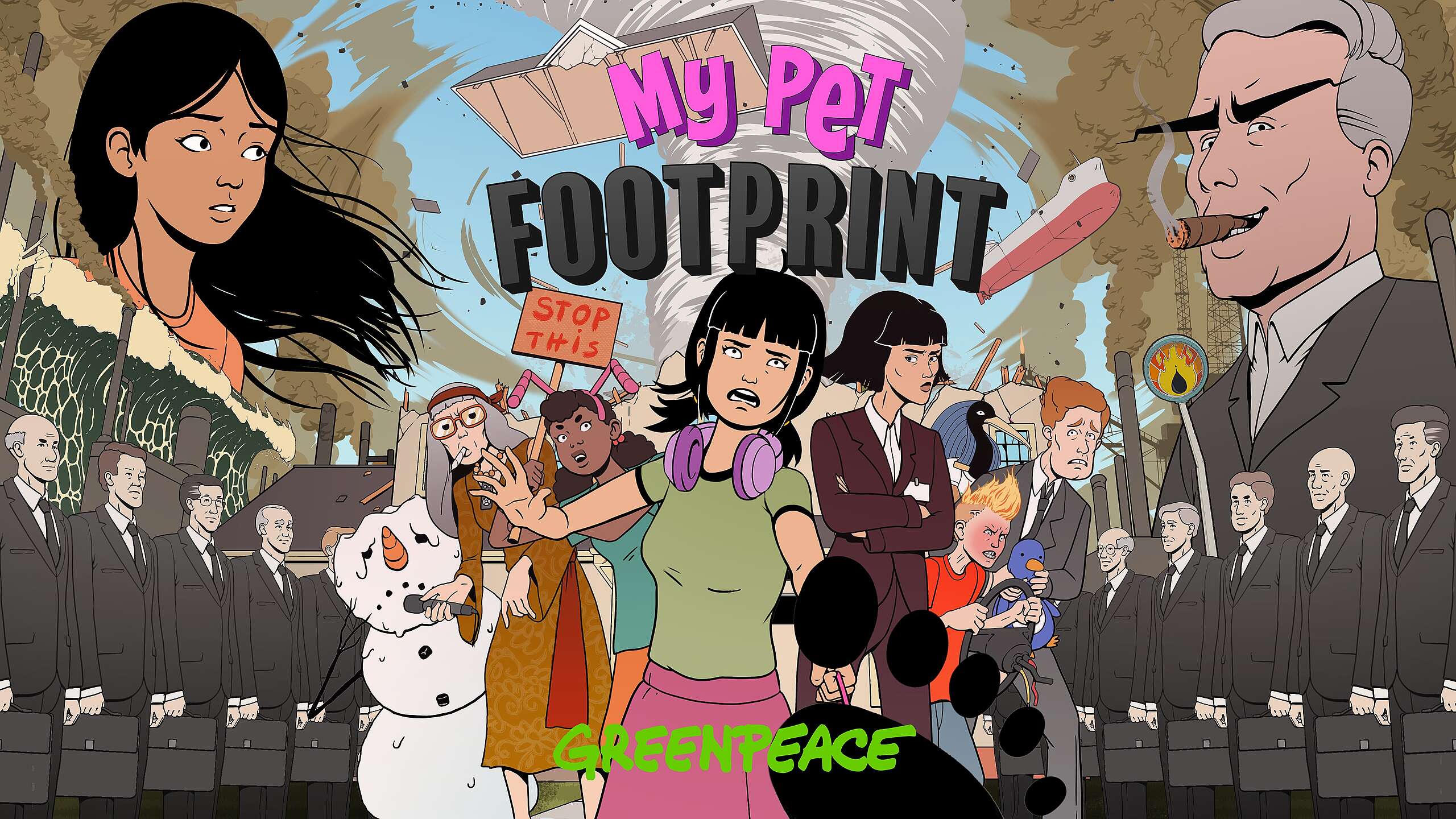“How does climate change impact Hong Kong?” This is often the first question being asked when we talk about global warming or extreme weather, which implies that the general public in Hong Kong still feels distant from these climate issues. However, right after the mid-autumn festival, the Hong Kong Observatory announced for the second time a record-breaking high temperature recorded in September since 1884. Not sure if the heat made you feel more relatable to the climate crisis?
Greenpeace climate and weather analyst Chris Ng, a Hongkonger currently residing in Canada, is going to share with us his journey from studying meteorology to advocating environmental protection, his experience in the United Nations (UN) climate change conference, and his suggestions to Hongkongers on how to tackle climate change.
Chris Ng joined Greenpeace in August 2021 as the climate and weather analyst for the Greenpeace Asia Research Unit. “My responsibility is to analyze weather patterns, especially for extreme weather events such as heatwaves, rainstorms, typhoons and wildfires. At the same time, I collect climate data to analyze the climate trends and to find the relations between extreme weather events.”
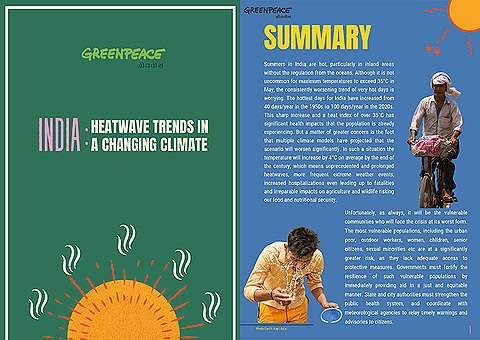
Chris investigates extreme weather events and their associations with climate change to provide concrete scientific evidence to support Greenpeace’s weather campaigns. He made use of his expertise to provide weather forecasts and supported many environmental protection campaigns, some of which might seem surprising to us. Before we go into more details about his work, let us start with understanding his background.
The child is father of the man, from watching rain to becoming a meteorology expert
While organizing the video interview, we emailed Chris to confirm if we can converse with him in Cantonese. He replied, “ I am a Hongkonger, born and brought up in Hong Kong.” It was for university education that Chris studied abroad. He studied meteorology in the UK, came back to Hong Kong after graduation, and then migrated overseas only a few years ago.
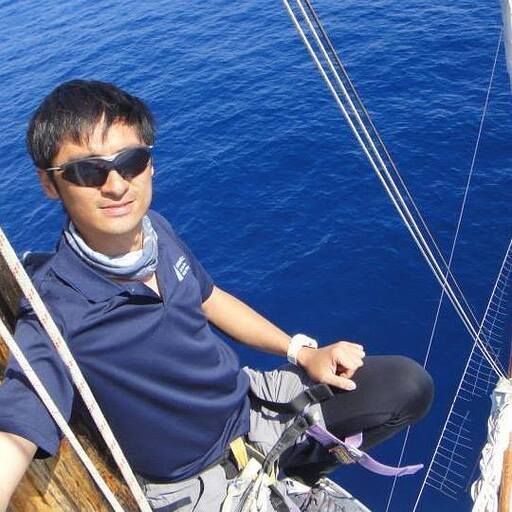
Chris lived in Aberdeen during his childhood. He has always been an outdoorsy kid, having a passion for observing natural phenomenons such as rainstorms, thunder and lightning, and typhoons. He was lucky to have friends who shared the same interest as him. Growing up, he was able to explore more in his daily life to satisfy his curiosity. And it was very natural for him to pick meteorology as his major.
What exactly is meteorology? Chris said it is about theories related to the atmosphere, for instance, understanding of air pressure and temperature with the use of calculation, computer simulation and weather charts. At this point, you might be curious if Chris ever applied to work at the Observatory.
Chris revealed that he thought about it but it was not a good timing as the observatory was to streamline its manpower at that time. So he started his career as an outdoor educator and sailing instructor. In 2008, Chris founded his own sail training organization, where he made use of innovative ways to educate youths. There he could also utilize his knowledge in meteorology as sailing is often affected by weather conditions, and meteorological instruments and radar were used to navigate the sea.
However, the operation of the organization was suspended due to the pandemic. It was then Chris started a meteorological consultancy company to provide weather forecasts for outdoor professionals.
Provide solid support to our actions and investigations
That was when Chris started crossing paths with Greenpeace East Asia. At first, Chris analyzed extreme weather events for Greenpeace as a freelancer. As the climate crisis becomes more severe, more manpower is needed to tackle the crisis. Chris then joined the research and investigation team of Greenpeace. He analyzes extreme weather events in East Asia through data analysis, telemetering and literature reviews.
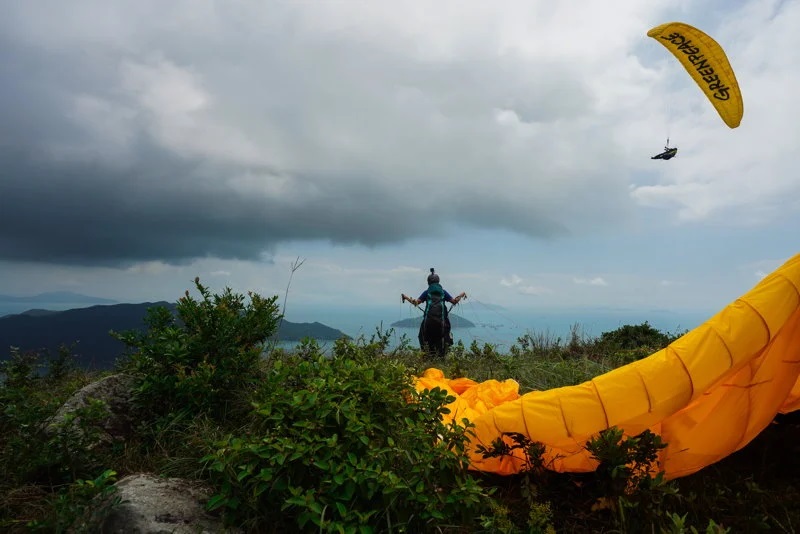
What was the most memorable Greenpeace campaign that you participated in? Chris said it was the “Save Our Lantau” paragliding action. Greenpeace supporters might also remember this very remarkable campaign. In September 2020, two volunteer paragliders flew above Lantau Island, bearing the message supported by Greenpeace and petitioned by more than 100,000 supporters, demanding to “Save Our Lantau”.
The paragliding action was planned to happen in Lantau and in autumn. However, that was indeed not the most ideal season and location for paragliding. The team needed to get hold of the fast-changing weather and wind conditions to ensure that the action can be carried out smoothly. Chris supported the action by providing weather forecasts to the team, helping us to find the best time interval to paraglide during the monsoon season. The paragliding action was a success. The video produced was motivational and empowering. Chris said he was really glad to be part of the team.
Read More: Behind the scene: Paragliding action to “Save Our Lantau”
People often plan their days with reference to the weather forecast provided by the observatory. Weather forecast is also important and essential to the planning and execution of our environmental campaigns even though it may sometimes be overlooked. For the actions or investigation carried out by our nuclear expert team, apart from having nuclear radiation protective gears and high-tech detective devices, knowing the local weather condition is also essential for us to conduct field investigations safely and smoothly. Chris backed many of our nuclear radiation field investigations by providing us with weather forecasts and analysis. He supported field investigations for the 10-year anniversary of the Fukushima Daiichi Nuclear Power Plant, the Chernobyl site amid the conflict between Ukraine and Russia, and the nuclear hazards at the Ukraine Zaporizhzhia nuclear plant.
The pride and the sigh of the scientist in the face of the climate crisis
Chris described the climate crisis as being a major challenge for mankind in this century and in the future. He pointed out that it takes a long time for the climate to change, and it takes even longer for people to be aware of and also acknowledge the existence of climate change; that is why some people are still skeptical, whereas some countries even use this as an excuse to neglect the problem. However, climate inaction or simply acting too slowly will lead us into being trapped in a vicious cycle.
Those who care about the climate and our environment are often thankful to scientists for being the whistleblower of the climate crisis. However, as a scientist, Chris regrets that he was not so involved in lobbying and advocating for policy change in the past.
After joining Greenpeace, Chris gained experience in climate policy discussion. He participated in the review of the United Nations IPCC climate report as an expert member. He also joined the 6th IPCC assessment report meeting with the Greenpeace team as part of the observer organization. All those IPCC-related work has brought Chris to the realization that the world is indeed not united in tackling the climate crisis, an issue that is supposed to be everyone’s priority. He witnessed how reluctantly some countries reacted to the climate crisis, and how some regions suffered so severely due to the climate crisis.
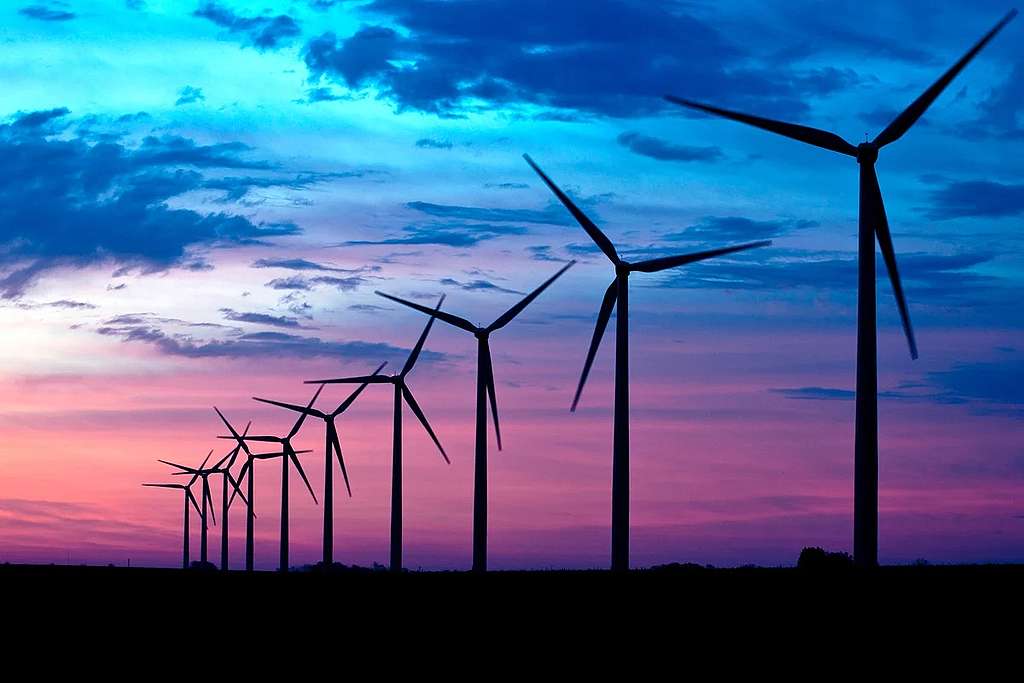
Are you pessimistic about the upcoming 2022 Climate Change Conference (COP27) that will be hosted in Egypt this November? Chris answered calmly that he will “take the wait-and-see approach and still anticipate”. Chris said he still has hope and thinks that we can stay hopeful. He quoted the UN report saying that if we can limit global warming to 1.5°C (the target set during the “Paris Agreement”), even if we might not be able to stop all the disasters, we can still reduce our loss. Chris believes that we can make powerful and positive changes if the whole world stays united, taking the example of how the ozone hole recovered after the passing of the “Montreal Protocol” to phase out the toxic chemical Chlorofluorocarbons (CFCs) that damaged the ozone.
Hongkongers’ efforts are also vital to tackle the climate crisis
Looking at the strategic planning of the global climate action, Chris thinks that Hong Kong has to speed up the development of renewable energy in order to catch up with the rest of the world and to meet the global zero emission target. He also pointed out that there are things that can be done in Hong Kong to help mitigate the climate issue. For example, Hong Kong is crowded with skyscrapers with curtain walls that created the greenhouse effect. If the government and the corporations can seriously evaluate and improve, the city can certainly become more environmentally friendly.
He thinks that Hongkongers should value their efforts and power. As he mentioned earlier, it took time for the climate to change. It works the same for us to turn the situation around. We need to accumulate our efforts and every bit counts.
From following his own passion to study and develop a career, to courageously exploring new opportunities during difficult times, and finally stepping into the frontline for environmental protection and climate actions that brought about more opportunities and experiences, it is fair to say that Chris’ journey is an inspiring one for all of us.
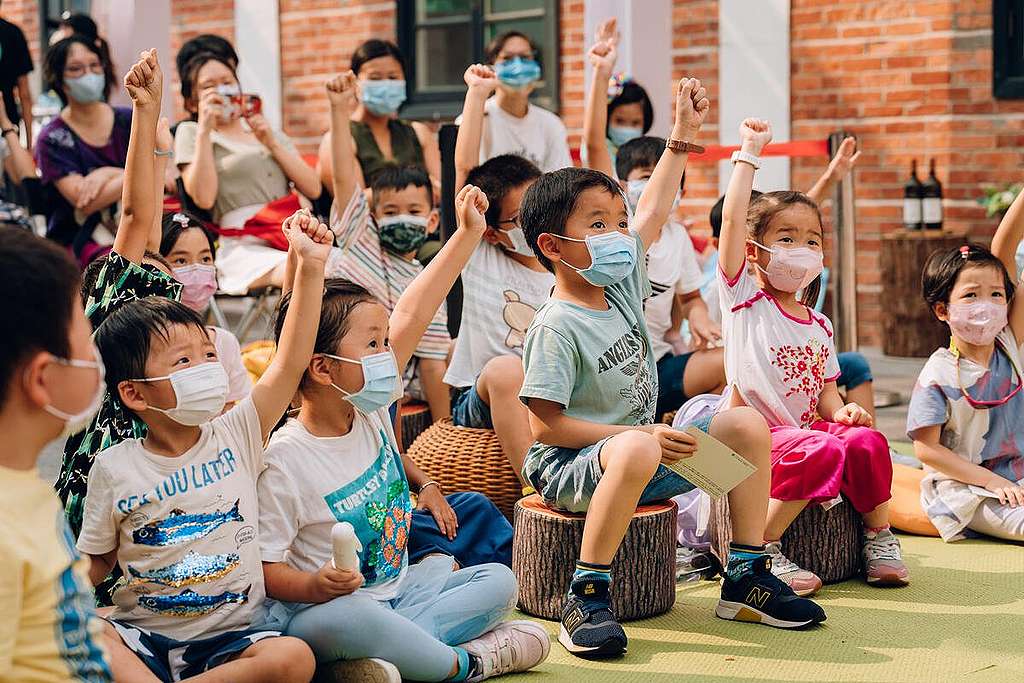
Chris’ words for Hongkongers:
“The global temperature and the sea level are both rising. Even if we achieve carbon neutrality, it is going to take a long time for things to go back to normal. Higher temperature provides better grounds for the formation of super-typhoons and the typhoon season will also be prolonged.
Hong Kong is lucky that our infrastructure can mostly withstand extreme weather events. However, there are places that are vulnerable, where lives, houses, farms, and the fishery industry could be damaged. Indeed, the global economy, energy supply, food supply, shipping, logistics are all chained together and interrelated. The greenhouse gases we produced indirectly brought natural disasters to vulnerable areas. However, sooner or later we will also be impacted. There are practical solutions but we have to catch the time and take action before it is too late.”
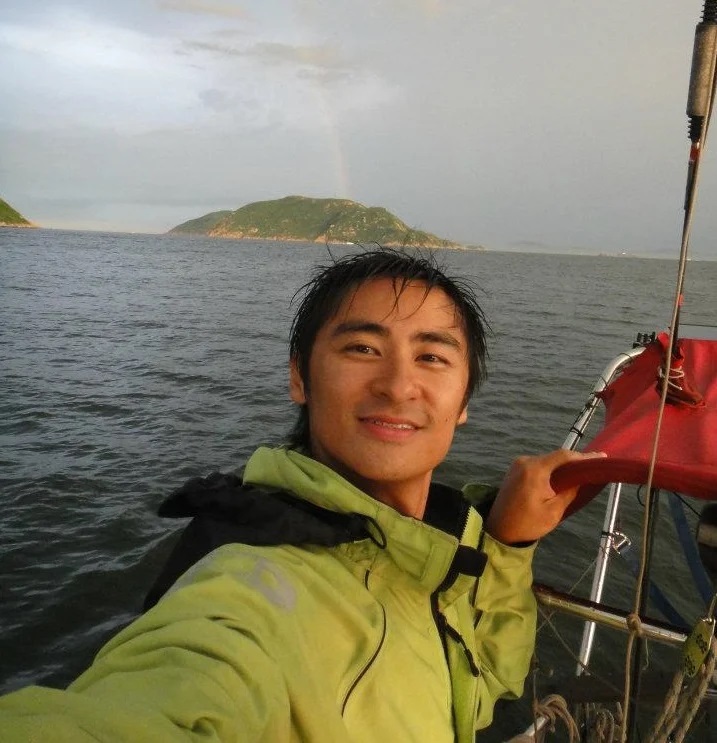
About “Let’s Talk about Climate Change” series
Climate change is not only here, but it has also evolved to “Climate Emergency”. As global citizens, we should not ignore the crisis we are in. Yet sometimes if not all, we might feel the issue is too big for us or too far away. We are inviting people in our local community, from all walks of life, to share with us how they connect to and make the effort to deal with climate change. Read More

